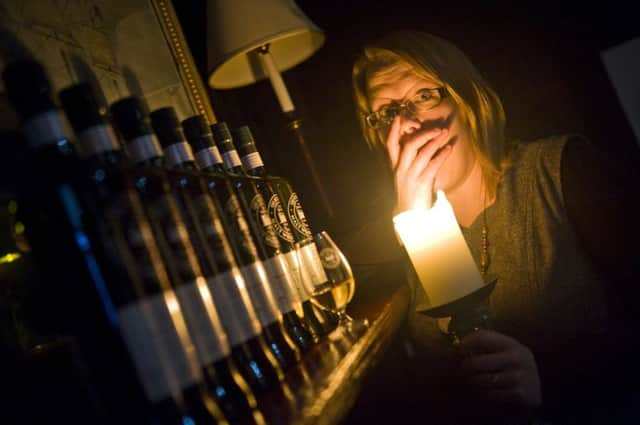Lori Anderson: Paranormal festival is frightfully good fit


Friends of Santa Montefiore are faced with just such a predicament, for the novelist has recently written an article explaining how she sees the spirits of the dead who loom over her bed in the middle of the night. “Opening my eyes, I found myself looking into the face of a total stranger. A middle-aged man was leaning over me. His face was five inches from mine and he was staring straight at me. As I gasped, he stood up, moved across the room and disappeared into the darkness.”
As a child of seven, Hillary Mantel, the author of Wolf Hall, encountered the devil in the back garden. In her memoir, Giving Up The Ghost, she interpreted it as the presence of a malevolent force, an absolute evil. In an interview she explained: “I couldn’t say I saw it. I’m talking about something at the very border of sensory experience. I could walk to where it was, could say how high it was and describe the speed at which it moved. But how I got that information, through which sense, I don’t know.”
Advertisement
Hide AdAdvertisement
Hide AdSanta Montefiore and Hillary Mantel would both make excellent panel guests at the inaugural Scottish Paranormal Festival, which was announced at the weekend and is scheduled to take place in Stirling over Hallowe’en. The festival, which runs from 31 October to 2 November, is being organised by Peter Broughan, the film producer behind Rob Roy and The Flying Scotsman, who has also spent a number of frustrating years trying to bring Confessions of a Justified Sinner to the big screen. Toiling over James Hogg’s gothic novel of satanic possession has clearly led him to view Scotland through a dark lens: “I came up with the idea because Scotland is very much linked in the public mind with the supernatural and the paranormal.” He is right. Scotland provided Shakespeare with the inspiration for one of his darkest plays, Macbeth, whose witches huddled over cauldrons were lifted from the pamphlets that detailed the North Berwick witch trials.
King James VI of Scotland (and later I of England) was so obsessed with the trials, understandable as the women were accused of trying to sink his ship with spells and incantations, that he interviewed one of the “ringleaders”, Agnes Sampson, at Holyrood Palace. She was later burned as a witch, as were between 3,000 and 4,000 other women in Scotland between 1560 and 1707. The kindling would have been piled high around both Montefiore and Mantel had they been unfortunate enough to have been born in the 16th century and spoken too freely of what they believed they had seen.
The smoke of so many grim pyres has acridly perfumed Scotland’s history and then swirled round the pens of our most distinguished poets and authors. Robert Burns penned his Address to the De’il and raised ghosts and ghouls in Tam O’Shanter while Robert Louis Stevenson’s Dr Jekyll and Mr Hyde may have been set in London but has the dark and dank atmosphere of his native Edinburgh. From the Loch Ness Monster to the “ghosts” of Mary King’s Close in Edinburgh, Scotland is a nation steeped in dark imaginings and I think the new festival of the paranormal could thrive, especially now that Hallowe’en is increasingly popular among adults. Securing Dan Aykroyd, the star of Ghostbusters, as a festival sponsor is a shrewd move. The Canadian star has agreed to donate two cases of vodka from the company he owns. It comes in a clear bottle shaped like a human head and if consumed too heavily is certain to induce the odd hallucination.
I’ve always thought that the appeal of the paranormal is not the fear induced by “encounters” with malevolent spirits in fog-wreathed graveyards but the comfort taken in securing “evidence” of life after death. I don’t believe in ghosts or UFOs but I do accept that life on earth is an intricately complex web of the known and unknown. It was Louis Theroux’s recent documentary about an intensive care unit in a Los Angeles hospital that reminded me that empirical sceptics don’t always get the final say or the right answer. A young man had suffered a drug overdose that rendered him brain dead, alive but unresponsive. No matter how many times the family were assured by the doctor of their son and brother’s permanent vegetative state they were insistent that he would recover and walk out of the door. The family’s insistence on an impossible outcome became increasingly annoying, right up to the point when he recovered and walked out the door. The incredulous tears of the doctor was a reminder of what Peter Broughan said is true: “Strange things happen.”